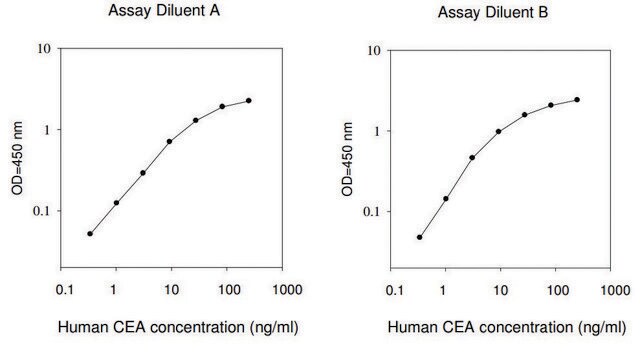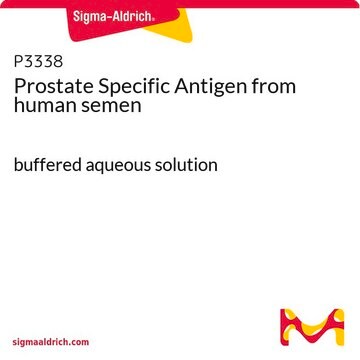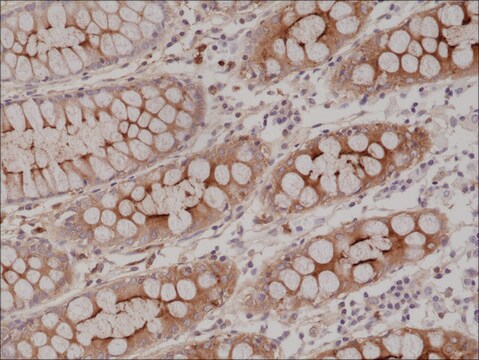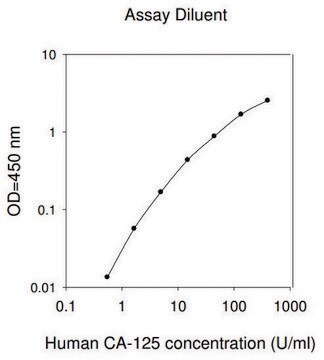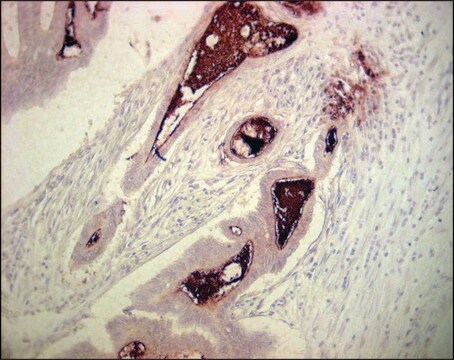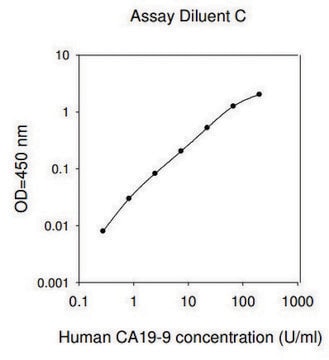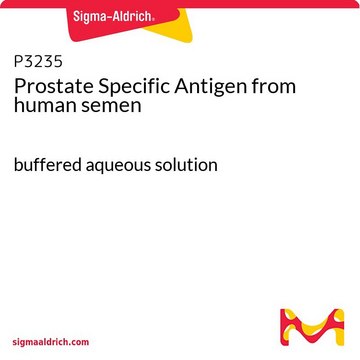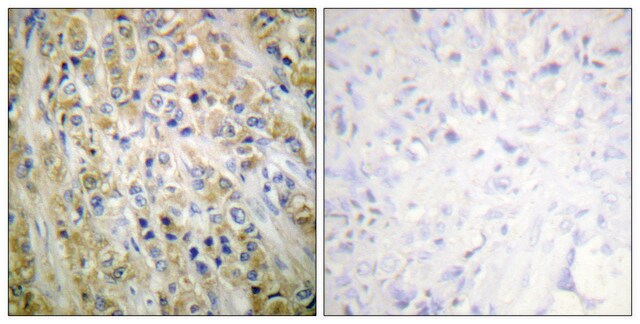C4835
Carcinoembryonic Antigen human
≥95% (SDS-PAGE), buffered aqueous solution
Synonyme(s) :
Cancer-associated CEA
Se connecterpour consulter vos tarifs contractuels et ceux de votre entreprise/organisme
About This Item
Produits recommandés
Niveau de qualité
Essai
≥95% (SDS-PAGE)
Forme
buffered aqueous solution
Numéro d'accès UniProt
Conditions d'expédition
dry ice
Température de stockage
−20°C
Informations sur le gène
human ... CEACAM5(1048)
Description générale
Carcinoembryonic antigen(CEA) or CEA cell adhesion molecule 5 (CEACAM5), is encoded by the gene mapped to human chromosome 19q13.2. CEACAM5 is a member of the CEACAM family. This glycosylated protein contains a typical N-terminal variable immunoglobulin (Ig)-like domain, constant Ig-like domain, and a hydrophobic transmembrane domain with a glycosylphosphatidylinositol lipid moiety.
Application
Carcinoembryonic Antigen human has been used as a standard in electrochemical immunosensor and developed surface plasmon resonance imaging (SPRi) immunosensor. It has also been used as a tumor-associated antigen (TAA) in enzyme-linked immunosorbent assay
Actions biochimiques/physiologiques
Carcinoembryonic antigen cell adhesion molecule 5 (CEACAM5) aids in cell adhesion and migration. In addition, this protein inhibits anoikis and thereby promoting tumorigenesis and metastasis. CEACAM5 is used as a biomarker to detect new cancer and cancer recurrence, particularly those with colorectal cancer. Upregulated expression of the gene enhances non-small-cell lung cancer (NSCLC) cell proliferation and invasion by regulating p38–Smad2/3 signaling. Therefore, CEACAM5 might be considered as an effective therapeutic target for treating NSCLC. Overexpression of the gene has also been observed in various types of cancer including gastrointestinal, pancreatic, and breast cancers.
Conditionnement
Package size based on protein content
Qualité
Highly purified
Forme physique
Solution in 0.15 M phosphate buffered saline, pH 7.4, containing 0.1% sodium azide.
Code de la classe de stockage
10 - Combustible liquids
Classe de danger pour l'eau (WGK)
WGK 1
Point d'éclair (°F)
Not applicable
Point d'éclair (°C)
Not applicable
Faites votre choix parmi les versions les plus récentes :
Déjà en possession de ce produit ?
Retrouvez la documentation relative aux produits que vous avez récemment achetés dans la Bibliothèque de documents.
Les clients ont également consulté
Go, V.L.W.
Cancer, 38, 562-562 (1976)
Zeynep Altintas et al.
Talanta, 86, 377-383 (2011-11-09)
An immunoassay in optimised conditions with a highly sensitive surface plasmon resonance (SPR) based biosensor was developed for the detection of the cancer biomarker carcinoembryonic antigen (CEA). Different formats of the immunoassay were initially investigated on the surface of the
Preeyanut Butmee et al.
Bioelectrochemistry (Amsterdam, Netherlands), 132, 107452-107452 (2020-01-14)
A novel electrochemical immunosensor was developed for label-free detection of carcinoembryonic antigen (CEA) as a cancer biomarker. The designed immunosensor was based on CEA antibody (anti-CEA) anchored with core shell Fe3O4@Au nanoparticles which were immobilized on a screen-printed carbon electrode
Notre équipe de scientifiques dispose d'une expérience dans tous les secteurs de la recherche, notamment en sciences de la vie, science des matériaux, synthèse chimique, chromatographie, analyse et dans de nombreux autres domaines..
Contacter notre Service technique